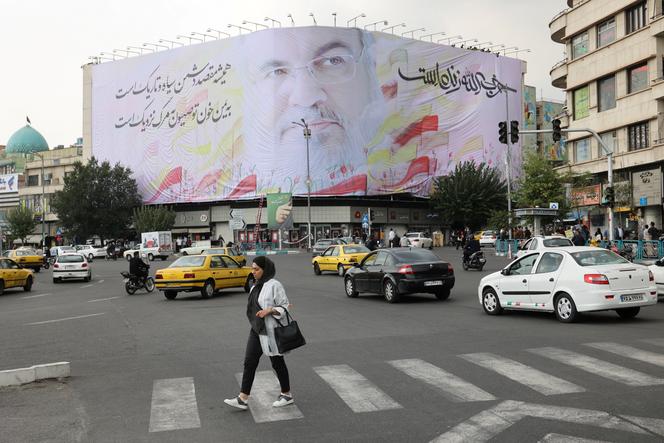


More than 48 hours have passed since the death of Hezbollah leader Hassan Nasrallah was officially announced, on September 28, and the Islamic Republic of Iran is still quiet, despite this major setback inflicted by Israel. Iranian Foreign Minister Abbas Araghchi spoke, on Sunday, of "the danger of a full-scale war in the region." "We are on high alert, and countries in the region and beyond must recognize how critical the situation is. Anything can happen at any moment," he told the press, before leaving New York, where he had been attending the United Nations General Assembly.
This time, no one has promised "vengeance," contrary to what observers had become used to hearing after each targeted assassination of major figures of the "axis of resistance" against Israel. A martial, vindictive tone was also absent from the two messages issued by Iran's Supreme Leader, Ali Khamenei. On Saturday, he had sought to reassure people, by promising that the death of Nasrallah, a close ally of Tehran, would not affect the "structure" of the movement Nasrallah had founded in Lebanon, and that it "will not be destroyed as a result of his martyrdom, but rather it will also be strengthened."
Having suffered numerous blows from Israel over recent months, the Islamic Republic of Iran currently appears to be at a strategic impasse. On April 13, when Iran's regime sought to respond to an April 1 attack on its consulate in Damascus, Syria, the majority of the hundreds of missiles Iran launched at Israel were intercepted. Tehran had failed in its intention to impose deterrence.
In July, the head of the political wing of the Palestinian movement Hamas, Ismail Haniyeh, was killed in the Iranian capital, after having just attended the inauguration of the new president, Masoud Pezeshkian. Since then, Israel has stepped up the number of targeted assassinations of senior Hezbollah officials, and destroyed the military infrastructure that the Lebanese Shiite movement had built up, with Tehran's help, over two decades.
"Today, Iran has no good options in the new situation," said Hamidreza Azizi, a researcher at the Stiftung Wissenschaft und Politik (SWP) institute in Berlin. "Whether Iran decides to respond or not, Israel will go even further to weaken the 'axis of resistance,' without being worried about the possible consequences of its actions, as it has recently demonstrated. In either case, a direct confrontation between Israel and Iran seems possible," he said.
Hezbollah, together with the other components of the now-weakened "axis of resistance" against Israel, are key pawns for Tehran in its confrontation with the geographically distant and technologically advanced state of Israel. "Without the member groups of the 'axis,' Tehran cannot wage war against Israel. And as Iran's stock of long-range missiles is not large enough, the regime is incapable of entering into a limitless war," said Azizi. Nor does the Islamic Republic have the power to help Hezbollah within Lebanese territory, beyond sending weapons and advisers from its elite Quds Force. Moreover, its ability to do so may even be limited by the Israeli offensive, which has bombed ground-based access points to Lebanon and controls its maritime and air space.
You have 55.34% of this article left to read. The rest is for subscribers only.
